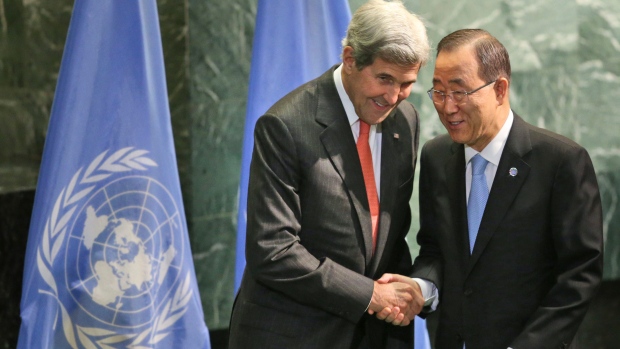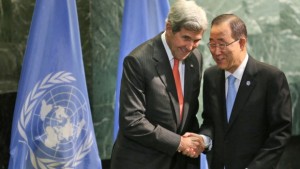The New Arab & agencies
Mezouar expects countries producing 55 percent of greenhouse gas emissions to join the treaty.
Diplomats head to Marrakech to hammer out details of the Paris Agreement ahead of the 22nd UN Climate Conference.
With the Paris Agreement on climate change poised to take effect, diplomats now head to Morocco to hammer out the difficult details of how to make it work and raise the $100 billion needed each year to meet its ambitious goals.
Morocco’s Foreign Minister Salaheddine Mezouar said he expects to announce that countries accounting for over 55 percent of the world’s greenhouse gas emissions have formally joined the treaty – the threshold needed to trigger the landmark agreement – when he presides over the 22nd UN Climate Conference in Marrakech that starts on November 7.
“Once the treaty takes effect, the next steps will require concrete actions on the parts of world governments to start implementing concrete policies in order to adapt,” said Mezouar.
Mezouar told AP in an interview on Thursday that he expects India, accounting for around 4.5 percent of emissions, to ratify the agreement by the end of October and the EU, responsible for about 12 percent, to ratify by the end of the year.
On Wednesday, UN Secretary General Ban Ki-moon announced that 60 countries accounting for nearly 48 percent of emissions had joined the agreement – just short of what is needed for the treaty to take effect.
Ban, who has made climate change a top priority since he became secretary-general nearly 10 years ago, said he also expects the Paris Agreement into force before he steps down at the end of the year.
US diplomats are also pushing other countries to accelerate their ratification efforts so that the deal can enter into force before President Barack Obama leaves office.
Mezouar said developed countries are expected to come up with $100 billion in climate financing each year with half of that going to help countries adapt to green energy and the other half to mitigating the effects of climate change.
He said he hoped that money would attract twice as much in private investment.
“The more commitments are clear, the more access to financing is simplified, the cheaper the technology becomes and we will out bet on the future through the Paris agreement,” he said.
Mezouar added that because the commitments are voluntary transparency will be essential in order for the international community to hold countries to their commitments.
The Paris Agreement asks both rich and poor countries to take action to curb the rise in global temperatures that is melting glaciers, raising sea levels and shifting rainfall patterns across the globe.
It requires governments to present national plans to reduce emissions in order to limit global temperature rise to well below 2 degrees Celsius [3.6 degrees Fahrenheit].








